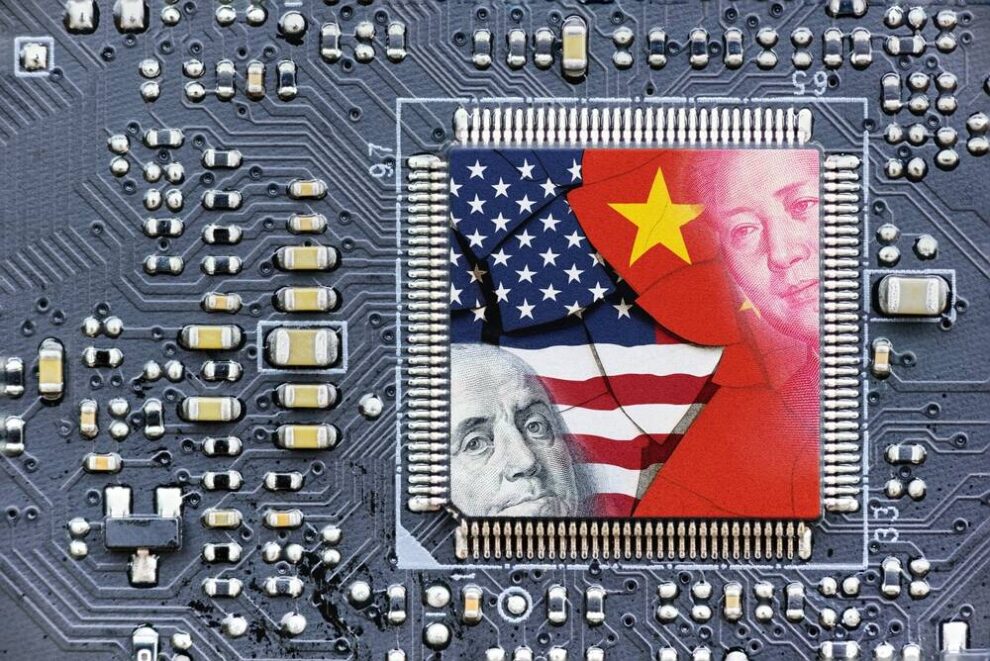Plus: US execs line up to dine with President Xi
US bans on exports of advanced chipmaking equipment to China are not working, according to a report from the US-China Economic and Security Review Commission.
The 741-page report [PDF] says that US president Joe Biden’s export controls on advanced computing and semiconductor manufacturing equipment “substantially impact China’s AI, computing, and semiconductor industries and represent a major advancement in the United States’ approach to curtailing China’s technology development.”
Mike Gallagher, chairman of the US House of Representatives Special Committee on China, has railed against US execs who have paid up to $40,000 to dine with Chinese president Xi Jinping.
Gallagher challenged that dinner must be a little awkward if the conversation were to switch back and forth between the quality of the meal and “extrajudicial internment of over a million Uyghur Muslims.”
“Xi Jinping has convinced capitalist executives to appease the CCP not because it treats them well but because they fear Beijing’s power,” claimed Gallagher last Friday at an event attended by Chinese dissidents. According to the representative, execs that ignore human rights issues convince Xi that “the global propaganda machine is working.”
The dinner seats reportedly ranged between $2,000 for an individual and $40,000 for “eight seats at a table plus one seat at Xi’s table for your CEO, as well as access to a VIP reception.”
In letters to the presidents of the National Committee on US China Relations and the US-China Business Council, Gallagher asserts: “The CCP’s continued efforts to weaponize market access and supply chain vulnerabilities further complicate the business landscape, and executives should take proactive steps to de-risk.”
This was particularly true for companies within critical and emerging technologies, including batteries, AI, advanced, computing, semiconductor manufacturing, and more, Gallagher said last week.
However, analysts have questioned the efficacy of the export controls in light of recent advancements at Semiconductor Manufacturing International Corp (SMIC) and Huawei, the report concedes.
The existence of a SMIC 7 nm processor in Huawei’s Mate 60 surprised some earlier this year as the Chinese chipmaker was previously known for making 14 nm chips at best.
- So what if China has 7nm chips now, there’s no Huawei it can make them ‘at scale’
- Netherlands joins US blockade of Chinese chip industry
- Ex-ASML worker accused of stealing chipmaking secrets for China is Huawei to a new job
- YMTC accuses Micron of ‘freeriding’ on its 3D NAND patents
One issue outlined in the report is that Chinese semiconductor fabs are finding it easy to get the equipment needed to produce chips only one or two generations behind the leading edge, which are not banned.
With the US Commerce Department’s Bureau of Industry and Security “using a 14 nm restriction limit, importers are often able to purchase the equipment if they claim it is being used on an older production line, and with limited capacity for end-use inspections it is difficult to verify the equipment is not being used to produce more advanced chips,” states the committee’s report.
Another issue is the difficulty in preventing the influx of mass-manufactured generic chips into China.
The report details that the only way controls are effective is when other major players in the global supply chain agree to play along, and even then if action is not taken immediately, China has time to stockpile banned materials, as is the case with deep ultraviolet (DUV) lithography machines.
Upon the Netherlands and Japan agreeing to ban the sales of equipment to China, their imports surged. Semiconductor manufacturing machines from the Netherlands had a 96.1 percent increase in imports to China year-on-year the first eight months of 2023, the report observes.
The commission said that one Beijing countermove to export controls was to increase their control over corporate information flows, an action that had significantly complicated China risk assessments for US businesses.
China has also bet on other industries, like electric vehicles, for domestic technology breakthroughs and is using government subsidies to help its exports gain large shares of the global market, according to the report.
“Its dominance of the electric vehicle (EV) industry at all stages of the production chain stands out as a rare example of China achieving its self-reliance objectives,” indicated
Source : The Register










